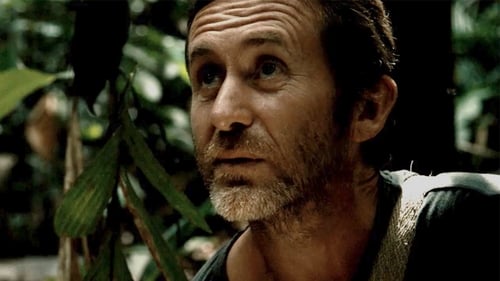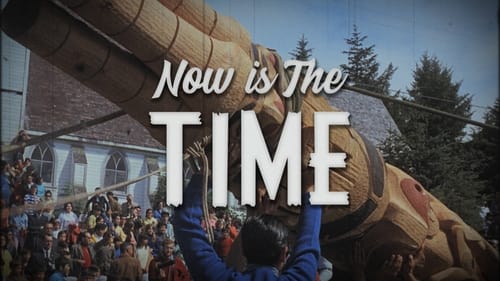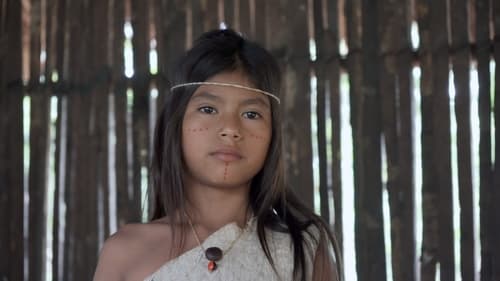
Explorer Bruce Parry visits nomadic tribes in Borneo and the Amazon in hope to better understand humanity's changing relationship with the world around us.

For ancient Mayans, cocoa was as good as gold. For subsistence farmer Eladio Pop, his cocoa crops are the only riches he has to support his wife and 15 children. As he wields his machete with ease, slicing a path to his cocoa trees, the small jungle plot he cultivates in southern Belize remains pristine and wild. His dreams for his children to inherit the land and the traditions of their Mayan ancestors present a familiar challenge. The kids feel their father's philosophies don't fit into a global economy, so they're charting their own course. Rohan Fernando's direction tenderly displays a generational shift, causalities of progress in modern times and a man valiantly protecting an endangered culture. Breathtaking vistas of lush rainforests contrast with the urban dystopia that pulled Pops children away from him. Will one child return to carry on a waning way of life

Alifu, a 25 year-old Paiwan boy, works as a hair-dresser in Taipei and struggles between his dream of getting a sex change operation and following his father’s footsteps to inherit the title as Chief of the indigenous Paiwan tribe. His lesbian roommate, Pei-Zhen, is also his best friend and confidante. Sherry, a transgender man, is the owner of a drag queen bar. For years, Sherry has been in love with the plumber, Wu, even though Wu only sees him as his buddy. Chris, a civil servant, lives a dull life. A one-time gig as a drag queen in the bar unexpectedly becomes his unique and secret way to relief stress. Chris has no choice but to keep this gig a secret from his girlfriend Angie. Across different genders and sexualities, the only common ground these people share is their search for love, understanding and acceptance.
(Source: Golden Village)

In a unique and defiant blend, the film tells the story of six generations of Indigenous activism through song and story.

The wild beauty of the Bella Coola Valley blends with vivid watercolor animation illuminating the role of the Nuxalk oral tradition and the intersection of story, place and culture.

Shot during three seasons, Kenuajuak's documentary tenderly portrays village life and the elements that forge the character of his people: their history, the great open spaces and their unflagging humour. Though Kenuajuak appreciates the amenities of southern civilization that have made their way north, he remains attached to the traditional way of life and the land: its vast tundra, the sea teeming with Arctic char, the sky full of Canada geese. My Village in Nunavik is an unsentimental film by a young Inuk who is open to the outside world but clearly loves his village. With subtitles.

The imagination of history in Ecuador never thought that oil, “its redeeming hope”, discovered in the Lago Agrio No. 1 well, was going to mean the beginning of the worst environmental catastrophe on the planet. Thirty years of operation and exploitation of the Texaco company, forever transformed the rivers and estuaries, the forests and the life of the indigenous communities in the northern Amazon of Ecuador.

This documentary started as part of a photography project about the indigenous Ainu population in northern Japan, portraying people from tightly knit communities. They feel deeply connected by their culture and tradition. With gorgeous pictures, the directors explore how different generations of Ainu reflect on their identity after centuries of oppression.

A 1969 documentary on the carving and raising of the first Haida totem pole in over a century becomes the springboard for a film that restores fullness and richness to the larger story of a nation’s resurgent identity.

In Peruvian Amazonia, for the first time in many years, a Shipibo–Konibo community prepare to perform the Aneshiati ceremony: a time of dance, song, festive clothing, and drink—including the sacred tea ayahuasca.

Benito Arévalo is an onaya: a traditional healer in a Shipibo-Konibo community in Peruvian Amazonia. He explains something of the onaya tradition, and how he came to drink the plant medicine ayahuasca under his father's tutelage. Arévalo leads an ayahuasca ceremony for Westerners, and shares with us something of his understanding of the plants and the onaya tradition.

Herlinda Augustin is a Shipibo healer who lives with her family in Peruvian Amazonia. Will she and other healers be able to maintain their ancient tradition despite Western encroachment?

In a remote Peruvian city, lives Honorata Vilca, an illiterate woman of Quechua descent who sells candies more than 20 years ago, with the rain will cry to the sky itself.

The Shipibo-Konibo people of Peruvian Amazon decorate their pottery, jewelry, textiles, and body art with complex geometric patterns called kené. These patterns also have corresponding songs, called icaros, which are integral to the Shipibo way of life. This documentary explores these unique art forms, and one Shipibo family's efforts to safeguard the tradition.

It became world news in October 2019 when economic reforms in Ecuador led to gas prices suddenly shooting up by 123 percent. People from urban and indigenous communities united in protest. In The Rebellion of Memory we follow the events through their eyes, as the country’s capital, Quito, descends into smoke-filled chaos.

This documentary rescues the valuable work of Martha Colmenares, an indigenous woman from the Zapotec highlands, who in the 1980s filmed the life and customs of her own community, becoming a pioneer of indigenous documentaries. And for the first time, her forgotten story, for forty years, will no longer be invisible.

Nunkui is 13 years old and lives in an Amazonian Shuar community with her grandparents, uncles and cousins. She frequently dreams of the feminine spirit of the garden, named Nunkui like her. The girl does not know this spirit, she does not understand her dreams and is afraid; she fears that it is a dangerous spirit, an Iwianch. Curiosity, anguish and food shortages lead Nunkui to discover the knowledge of Rosa, her great-aunt, who still cultivates a traditional garden (aja shuar). Little by little, the garden and the sacred songs (anents) become a refuge for the young woman.

In the hills of Costa Rica, Doña Carmen struggles to pass on her tribe's traditional ways of life. She must soon marry off her only granddaughter, and 70-year-old shaman Don Claudio lays his claim to the girl, who is only 12 and already impregnated by him. When the girl befriends the young son of a visiting anthropologist, it forces a collision between the modern world and the ancient one.

It’s spring in the Ecuadorian Amazon and the Uyantza festival is underway with the community celebrating all that the forest has to offer. Meanwhile, news is breaking around the world that a novel virus is spreading and a state of emergency is declared across the country. As people test positive for COVID-19 in the community, some families decide to leave and head deeper into the jungle. Disconnected from school, friends, the internet, and work, one family learns to reconnect with life in the forest. The children begin to unlearn the national curriculum, and instead are taught Indigenous knowledge that mainstream schools normally pass over. As COVID-19 wreaks havoc around the planet, the family reconnect to their ancestral ways, but as news arrives that Ecuador’s lockdown will end soon, will the family choose to return?


















